- Home
- Paullina Simons
Bellagrand Page 25
Bellagrand Read online
Page 25
“This is what you want? To leave Boston, your life here, all your friends, and spend three years cooped up in a house?”
“Many of my friends have died. And who said I’m going to be cooped up?” She tried to smile. “I’m not under house arrest.” She paused. “What choice do we have? It’s a way out of this. I do want that.”
“What about your brother?”
“He can come visit.”
“It sounds like hell to me, frankly. Utter torture.”
Gina’s lip trembled. “I’m going to have a baby,” she whispered.
“I’ll believe it when I see it,” said Harry.
Gina’s hands shook as she stood up, supporting herself against the table. “What is it about you,” she said, “that you bend in half all the people who love you?”
He stood up, but couldn’t think straight.
“Time, Barrington!” Roy yelled. “Wrap it up!”
Gina picked up her purse. “Harry, you tell me what you’d like to do. Stay here? Have me live with Esther? I’ll do as you wish. I don’t want to spring you from prison, if this is where you’d prefer to spend the next ten years of your life. Or perhaps Russia? Deportation? While there is still time, just give the word. The Buford is waiting. Bellagrand is supposed to be deliverance, not submission. Should I tell your father to forget the whole thing?”
“Stop being so Italian and melodramatic. I said I was sorry.”
“Yes, and meant it.”
“Look, I’m just dreaming of a time when you and I will once again see eye to eye on the important things. Like before. Remember?”
“Well, that’s just it. You’ve always been such a dreamer, Harry.”
“It’s what you used to say you loved best about me.”
“Must have been a long time ago,” she said, turning away. “Perhaps it was when you and I saw eye to eye on the important things.”
“Barrington, time!”
“Look, I want to get out, I do,” he said.
“I’m sure.”
“For the third time, I’m sorry—”
She left, she didn’t even turn around. She barely managed to square her shoulders so he wouldn’t see her cry. She was too proud to let him see the heartbreak in her humbled spine.
Seven
WHEN GINA WAS PACKING up their Lawrence house, throwing out twenty years of life, hoping she was leaving and never coming back, she found a letter Harry had written to her in June of 1905, barely three weeks before they were married.
My dearest Gia,
I’m writing you this letter as you slumber curled up on your side in front of me. We haven’t even parted, yet I’m sitting here watching you, missing you unbearably already, because I know what’s coming in such a short while. You will go your way, and I will go mine, if only for this Wednesday. I wish you knew how desperately I don’t want to spend a moment apart from you. I feel physical anguish as I write this, knowing how soon we will have to part.
These stolen Wednesday afternoons are not enough for me. Crawling to you on Thursdays just to watch you for two hours sell books to strangers is not enough for me.
I want nothing in my life as much as you. You are the whole reason for my breathing, for opening my eyes every morning. I can exhale because I know there is a chance I might see you this day if only for a few moments. You must be studying so hard into the late hours of night to fall asleep this soundly in the middle of the day, in the middle of our precious stolen afternoon. We’ve gotten it all backward, my heart. You should be studying in the middle of the day and staying awake into the witching hours with me. Look at this—I’m even jealous of your studying.
I will confess, I am jealous of every single thing you do that does not include me. I’m on the rack of jealousy about everything you lay your exquisite eyes upon that’s not me.
Has anyone ever told you that you are a beautiful girl?
You are a vision to look at, you are a Raphael work of art, a rare Caravaggio. If you saw what I see now, you would know that what I want to say is, you are a Modigliani singularis, but I don’t want to make you blush, even in your sweet repose.
I hope you will not show this letter to anyone; how could I ever look them in the eye after these romantic ramblings, all the more awkward because they’re so keenly heartfelt.
But you are the muse to my every insipid utterance.
Soon you will open your eyes, your mouth—O Lord, deliver me from this madness!
I can’t imagine anyone feeling this way about anyone.
Can I write something and have you promise you won’t laugh when you read it? I want to say that no one has ever loved as much as I adore you, as much as I worship you. You have taken me by fiercest storm. You’ve left me nothing of my former self, my former life. I cannot imagine a day that doesn’t have you in it. No, it’s more than that. I reject a life in which I do not lay my eyes upon you, every day. My arms upon you, my hands upon you. My mouth upon you.
Yes, yes, my Giaconda, any minute I will be arrested for the words I’m committing forever to this unworthy stationery, I will be thrown behind bars because of my love for you.
I love you more than I love myself. I feel I’m not my own when I’m away from you.
At the same time, your reciprocal modest affection for me makes of your most ardent slave a king.
You know how you keep saying, You’re such a dreamer, Harry. When you murmur it, it’s like a caress from your lips. It’s your love letter to me. A dreamer. This I freely admit. For when I dream, my beloved Sicilian princess, I dream of you.
Fervently, blindly,
Harry
Part Two
BELLAGRAND
1919–1922
When I was down beside the sea
A wooden spade they gave to me
To dig the sandy shore.
My holes were empty like a cup.
In every hole the sea came up,
Till it could come no more.
—Robert Louis Stevenson
I saw a great big, tiny house
Ten thousand miles away;
And to my view ’twas out of sight
Last night, the other day.
The walls projected inward,
The front door round the back;
Alone it stood between two more,
And the walls were whitewashed black.
—Anonymous
Chapter 8
FLAGLER’S QUEST FOR PARADISE
One
THAT’S IT? JUST LIKE that on my way to another prison?” Harry said to Esther and Gina in the car as they headed to Boston’s South Station under police escort.
“Yes,” Esther said calmly. “You’re being transferred to a new location for your continuing confinement. What did you expect?”
Herman didn’t come to see his son off. He posted a sizable bond with the United States District Court for Massachusetts, guaranteed the house for Harry’s detention and the conditions of his transfer, had Harry undergo a court-appointed evaluation and sign his release documents in the presence of a witness, hired a Pinkerton man to ensure Harry’s safe travel south, and hired a round-the-clock guard in Florida to watch over his forty-one-year-old child as required. He did all that, but would not drive to Massachusetts Correctional to watch Harry walk out through the prison gates.
Harry was relieved. He knew his father had done him a service he could not repay. At the same time, to be indebted to his father for an obligation so large, a father who had shunned him, spurned him, turned his back on him, was hateful to Harry. He resented his father more, not less, in direct proportion to the degree of reprieve granted to him. He was angry, not grateful, and was benignly bitter toward his stern, well-meaning sister. But he was most hostile to the woman who carried his child. He regarded with icy stiffness her stoic demeanor, and he especially chafed at the news of the death of the most indispensable member of his wife’s family: her sainted mother. Harry resented Mimoo’s death with a special vehemence because
her now permanent absence meant that he was left to bear the sole burden of responsibility for Mimoo’s daughter. The weight of that was almost unbearable.
So as he collected his things on the morning of his departure in early January 1919, Roy, his loyal guard, asked him what in the world was wrong with him, walking as he did. “I’ve seen death row inmates walk faster than you.”
Harry said nothing.
“It’s okay, man,” Roy went on. “What you worried about? You got a baby coming, it’s wintertime, but like a free bird you headed south . . .”
“Transplanted like a West Indies palm tree,” said Harry.
“Away from the things of man,” Roy said. “To palaces and playgrounds.”
“You mean away from the good things of man,” Harry said, pining for pulpits and principles.
“To your wife, asshole.”
Harry shrugged. He didn’t explain. And couldn’t. “Women are trouble” was all he said.
“You’re preaching to the choir, matey,” Roy said, with a look of a man who was well acquainted with that trouble. “But why do they have to smell so good?”
Again Harry said nothing.
“It’s only three years,” Roy said. “You can do three years in Florida half asleep on the beach, can’t you?”
“Three years?” said Harry. “It’s an eternity. Russia had a whole revolution in ten days! Three years is nearly an entire presidential term of office. It’s a university education.”
“Well, it’s seven years less than what you were looking at, man,” Roy said, “and in a ten-by-ten concrete cell, too. So quit your whining and pick it up. Your wife is waiting.”
Across the road Gina was leaning against the car in the cold. Esther and Rosa were by her side. Roy took one long, soft look at the forlorn but statuesque and vivid Italian woman, and turned his gaze to Harry. “You are one fucked-up fella,” Roy said, shaking his head and handing Harry his satchel of belongings. “Is it even yours?”
“Fuck you.”
“And farewell. See you soon, Barrington. You love it here. I know you won’t be able to stay away.”
Clarence drove them. In the car, they were quiet. Harry barely nodded to the kind black man, now slower and older, who had spent every day many years ago driving him back and forth to Harvard.
“What about my things in Lawrence?” Harry asked Gina. “My books, my . . .” He squeezed his hands around the invisible sentiments.
“All been done,” said Gina. “Already sent on ahead.”
Harry turned away from the women, to the window. “So all difficulties of life have been removed. I don’t have to even fold my own shirts anymore. Just like in reformatory.”
“Been doing much of that, Harry?” Esther asked. “Folding your own shirts?”
“Esther, you are a wonderful woman, and you are my sister,” Harry said. “But in many ways, you’ll forgive me for saying this, I’m afraid you’re rather like Laurence Sterne’s wife Elizabeth Lumley, of whom he wrote that she was a woman of great integrity and many virtues but they all stood like quills upon the fretful porcupine.”
“Sticks and stones, dear brother. Sticks and stones.”
“Who in the world is Laurence Sterne?” said Gina. “And why should we care what he thought about his wife?”
The ride to Boston from Concord was an interminable seventy-five minutes.
But it was nothing compared to the five days Harry and the three women spent cramped together in a train sleeper compartment with a huge Pinkerton guard outside their door. Only Esther and Rosa, accompanying her mistress, chatted to each other. Gina slept, tried to get comfortable, ate, drank, alluded vaguely to some discomfort but otherwise just stared out the window. Harry drank little, ate even less. He knew his silence was like watching a stone bleed. Any day John Reed was publishing Ten Days That Shook the World, his eyewitness account of the Russian Revolution, while Harry was on a train with three women to a new jail!
“What do you know about this house we’re going to, Harry?” Gina asked when they were past Cocoa Beach, a few hours away from their final destination in South Florida.
“I wish I could say I know nothing about it.” He shrugged. “Unfortunately I know something about the man who built it.”
“Have you ever seen it?”
“Not a sketch or a photograph.”
Beyond the window was sun, blue skies, palm trees verdant and abundant. “It’s pretty,” Gina said. “Tropical. Unfamiliar. You never came here?”
“We went north to Newburyport.”
“So how did your mother get this house?”
“Who knows these things?” Harry glanced at Esther and away. He didn’t want to talk. But Gina had become more animated with the looming proximity of a new life.
Like a child she pressed her eager face to the window. “Tell me about the house.”
“Gina,” Esther said, moving closer to her sister-in-law, “my brother doesn’t like to talk about these things, but our mother left an unaddressed and unsigned note in her personal effects.”
“Esther, I don’t want to discuss it,” Harry said.
“I do,” said Gina. “What did it say?”
“I’m paraphrasing, but it went something like, of all the meager gifts to give my son, I wish I could give him his own house, built to shelter and protect a family, with windows onto joy and onto God-created beauty, perhaps one day to shelter and protect his family, such a house that may he never forget the romance of life.” Esther’s eyes blinked slowly at Harry. “Perhaps it’s this house Mother was talking about, Harry?”
“Don’t know, don’t care,” Harry said.
“What is this romance?” asked Gina. “I already forgot.”
“Funny,” said Harry. “Keep joking. You know, Gina, Oscar Wilde says nothing spoils a romance faster than a sense of humor in a woman.”
“And who better to pontificate about women than him.”
Harry turned to Esther. “For someone who couldn’t remember a lick of it,” he said, “you sure managed to mangle quite a lot of it.”
“He has it, Esther,” Gina said.
“Has what?”
“That note.” Gina didn’t turn from the window. “I last saw it between the pages of a book by his bedside.”
“Like the Bible?” asked Esther.
“Lenin’s What Is to Be Done?, I believe.”
Esther stared slack-jawed at Harry. “You kept Mother’s note?”
“I have no idea what you’re both talking about,” Harry said, pressing his own dull face to the window as the train sped on. Not romance of life, you doltish louts, he wanted to shout. So that he may never forget the romance of youth, wrote his mother, Frances Barrington, the night before she died.
“Gina, would you like to hear a story about the man who built Bellagrand?” Harry said. “It’s almost like a fairy tale. In every way but one.”
“What way is that?”
“It doesn’t have a happy end.”
Two
ONCE UPON A TIME into the Floridian swamps and mangroves sailed the Spanish and wrecked their fleet on the low-lying barrier islands. The gold and silver poured out of their ships and down the coast, and then the sea took it high and low, far and near. It became known as the Treasure Coast. Remnants of the riches that the Spaniards left behind can still occasionally be found under the ocean sands.
The gold remained for years in the alluvial flats on the beaches, but when the hurricanes came, they washed it away. Man came and planted palm trees and holly. Man preserved the dunes and marveled at the Blowing Rocks that looked like Badlands on the Atlantic.
Years went by, and then a man came south whose father had abandoned him because he was too poor to feed his boy. From an early age, the son learned to feed himself. The boy never received more than an eighth-grade education. He started up a salt mining company in Michigan, but when the American Civil War ended and the demand for salt dropped, he went out of business and lost his entire inves
tment. Later he borrowed the money to lend to his friend John D. Rockefeller to start up a refinery for black gloop that spurted out of the ground and propelled engines like bullets. When Rockefeller was asked if he was the one who had come up with the purifying plan, he replied that he only wished he had the brains to think of something that clever. But it was his partner and close friend Henry Flagler who had come up with it. Their company, Standard Oil, became the most successful company in the world.
When Flagler’s wife got sick, he took her to St. Augustine, Florida, to recuperate. It was there that he first glimpsed the tropical climes and starry skies and thought the seaside town would make a fine spot for a secluded summer sojourn.
Afterward, Flagler became consumed with developing South Florida. It was his vision for easy access to the tropical lands that drove him to take such an active interest in this part of the young country. Frustrated with the inadequacy of railroad access and the paucity of hotels in a place that to him not only seemed like paradise, but was paradise, he used his oil wealth to build and then extend his East Coast Railway, and to dredge the swamp harbor that became Miami and Coconut Grove. There was no Miami until Henry Flagler built it. When the city was incorporated in 1896, its population was three hundred souls. Twenty years later it was thirty thousand.
Always on the lookout for investment partners, Flagler paired up with an old-moneyed New England industrialist named Herman Barrington. Their wives were friends, and so the men became friends. Flagler offered Herman an opportunity to transform the untrampled tropics into the “American Riviera.”
Always on the lookout for investment opportunities, Herman readily agreed. Their real estate interests converging, Flagler and Herman developed the barrier island that became Palm Beach. In the 1880s, Herman generously invested and was generously rewarded, using the prodigious profits from Florida’s real estate sales to renovate many neighborhoods around Boston, including the North End. For years, Flagler and Herman happily partnered, building yacht clubs and mansions and shopping arcades that sprang up amid the leafy palms along the Atlantic dunes. The Treasure Coast is peppered with Flagler’s towns, from Cutler Bay to Jupiter Island.

 The Summer Garden
The Summer Garden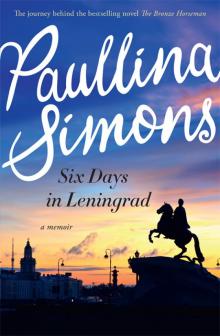 Six Days in Leningrad
Six Days in Leningrad Bellagrand
Bellagrand Tatiana and Alexander
Tatiana and Alexander Road to Paradise
Road to Paradise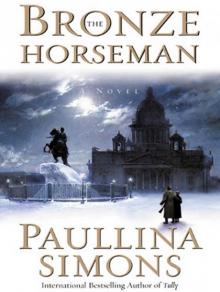 The Bronze Horseman
The Bronze Horseman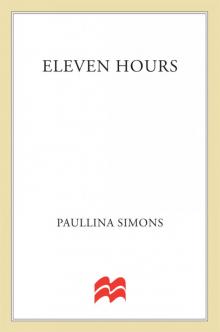 Eleven Hours
Eleven Hours Tatiana's Table: Tatiana and Alexander's Life of Food and Love
Tatiana's Table: Tatiana and Alexander's Life of Food and Love The Girl in Times Square
The Girl in Times Square The Tiger Catcher
The Tiger Catcher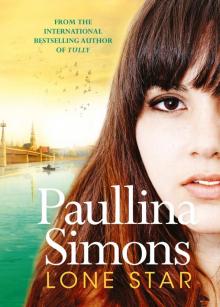 Lone Star
Lone Star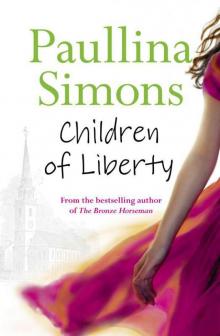 Children of Liberty
Children of Liberty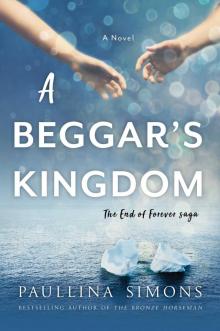 A Beggar's Kingdom
A Beggar's Kingdom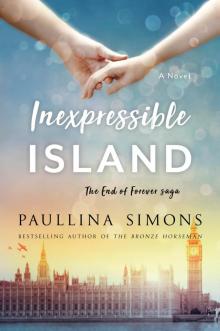 Inexpressible Island
Inexpressible Island Tatiana and Alexander: A Novel
Tatiana and Alexander: A Novel Tatiana's Table
Tatiana's Table A Song in the Daylight (2009)
A Song in the Daylight (2009)